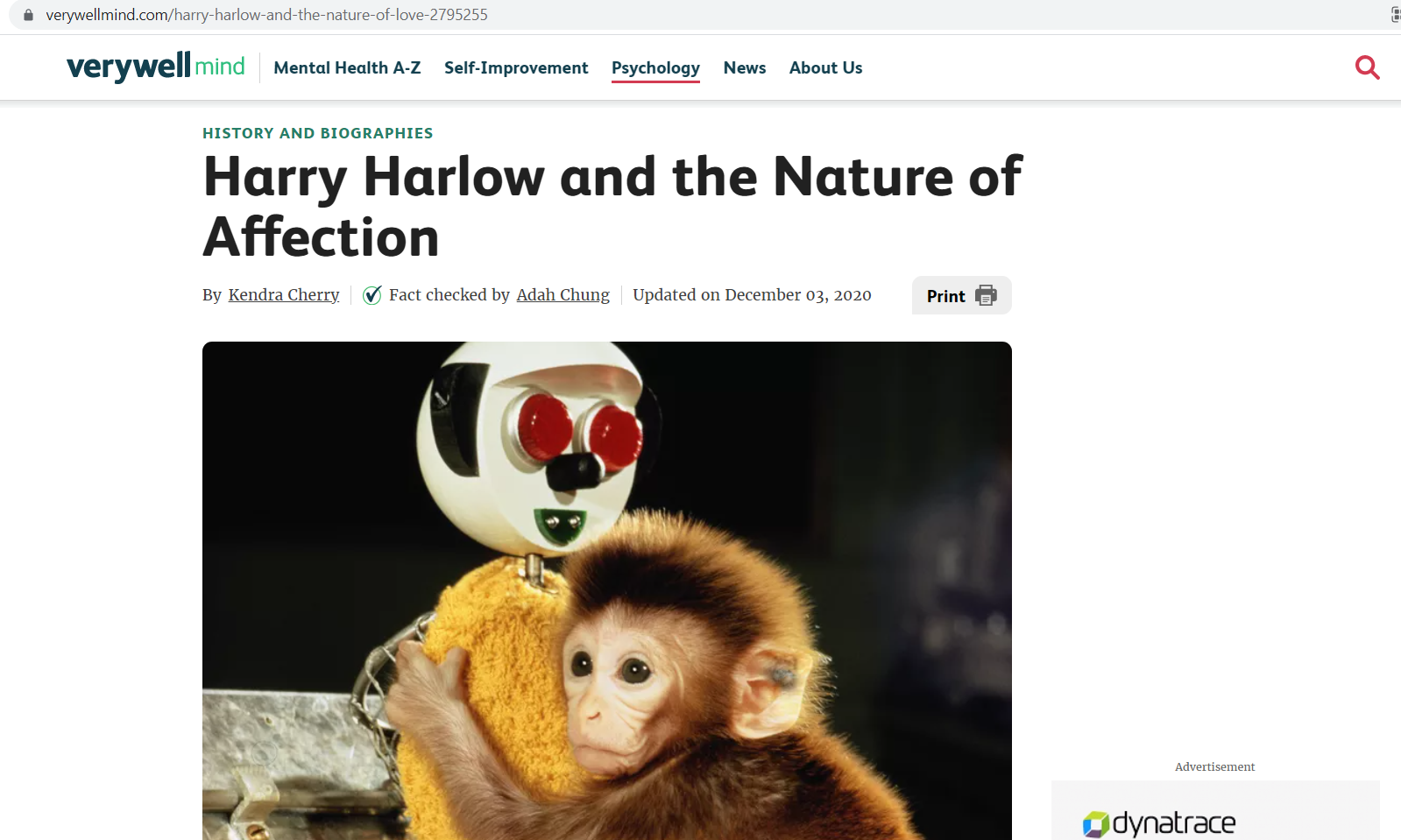
Importance of affection to children: Harry Harlow Experiment
Importance of love and affection for healthy child development

Source : Harry Harlow and the Nature of Affection
During the first half of the 20th century, many psychologists believed that showing affection towards children was merely a sentimental gesture that served no real purpose. Psychologists were motivated to prove their field as a rigorous science. The behaviorist movement dominated the field of psychology during this time. This approach urged researchers to study only observable and measurable behaviors.
An American psychologist named Harry Harlow, however, became interested in studying a topic that was not so easy to quantify and measure—love. In a series of controversial experiments conducted during the 1960s, Harlow demonstrated the powerful effects of love and in particular, the absence of love.
His work demonstrated the devastating effects of deprivation on young rhesus monkeys. Harlow's research revealed the importance of a caregiver's love for healthy childhood development.
Feedback and Comment
<a href=http://vardenafil.top>compra levitra</a> 0 mEq L for each 0 <a href=http://vardenafil.top>compra levitra</a> 0 mEq L for each 0
COMMENT AND FEEDBACK